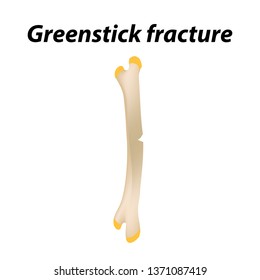Nourishment'S Impact On Back Pain Alleviation: Dietary Choices To Embrace And Those To Stay Away From
Nourishment'S Impact On Back Pain Alleviation: Dietary Choices To Embrace And Those To Stay Away From
Blog Article
Article Composed By-Russo Sharpe
When it comes to handling your pain in the back, the food selections you make can significantly influence just how you really feel each day. Think of having the ability to reduce your pain merely by changing what you consume. By recognizing the role of nourishment in pain in the back monitoring and recognizing which foods to integrate or avoid, you can take aggressive steps towards a healthier and more comfy lifestyle. The connection in between nutrition and back wellness is extra extensive than you may recognize-- allow's discover exactly how particular foods can either relieve or exacerbate your pain in the back.
Importance of Nutrition in Pain In The Back
Nutrition plays a critical function in taking care of back pain. Your diet can substantially affect swelling degrees and general discomfort degrees in your back. Consuming a balanced diet rich in nutrients like vitamins D and K, calcium, magnesium, and omega-3 fats can help in reducing swelling and enhance bones, which are crucial for back wellness.
Furthermore, maintaining a healthy and balanced weight via correct nutrition can ease anxiety on your spinal column, reducing the risk of pain in the back.
In addition, specific nutrients like anti-oxidants found in fruits and vegetables can aid fight oxidative anxiety and advertise recovery in the body, including the back muscle mass and spinal column.
On https://www.npr.org/2021/10/07/1044052168/nba-former-players-charged-health-care-fraud , eating excessive amounts of refined foods, sugary drinks, and undesirable fats can add to inflammation and weight gain, intensifying pain in the back.
Foods to Consume for Back Wellness
To sustain a healthy and balanced back, including nutrient-rich foods into your everyday dishes is vital. Consisting of foods high in antioxidants like berries, spinach, and kale can help reduce inflammation in your back, relieving pain and pain. Omega-3 fatty acids found in fatty fish such as salmon and mackerel have anti-inflammatory residential properties that can benefit your back health.
In addition, taking in nuts and seeds like almonds, walnuts, and chia seeds supplies important nutrients like magnesium and vitamin E, which sustain muscular tissue feature and minimize oxidative stress and anxiety. Integrating lean healthy proteins such as poultry, turkey, and tofu can aid in muscle repair service and maintenance, promoting a solid back.
Do not fail to remember to include dairy products or fortified plant-based choices for calcium to support bone health. Last but not least, hydrate with lots of water to maintain your back discs hydrated and operating optimally. By including https://tysonkeytm.izrablog.com/31219637/the-five-primary-advantages-of-seeing-a-chiropractic-practitioner-accomplishing-discomfort-alleviation-and-promoting-overall-health -dense foods in your diet, you can nourish your back and support total spine health.
Foods to Avoid for Pain In The Back
Select preventing refined foods high in added sugars and trans fats when seeking remedy for neck and back pain. These kinds of foods can contribute to swelling in the body, which may worsen pain in the back. Say no to sugary snacks sweet, pastries, and sweet drinks, as well as convenience food products like burgers, french fries, and fried poultry that are often loaded with trans fats.
Furthermore, avoid foods including high levels of polished carbohydrates, such as white bread, pasta, and pastries, as they can increase blood sugar level levels and potentially intensify inflammation in the body.
It's also smart to restrict your intake of foods high in hydrogenated fats, like red meat and full-fat milk items, as they can add to inflammation. Processed foods like deli meats, chips, and packaged snacks are commonly high in saturated fats and should be consumed in moderation.
Conclusion
Finally, taking note of your diet regimen and making smart food choices can have a significant effect on handling pain in the back. By incorporating nutrient-rich foods like berries, fatty fish, nuts, and lean proteins, and preventing processed and sweet products, you can help reduce swelling and support on the whole back wellness. Keep in mind, what you consume plays a critical function in exactly how you really feel, so see to it to prioritize your nourishment for a much healthier back.
